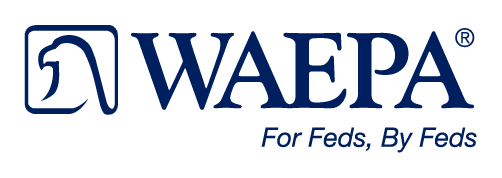
The Journey of a Millennial Federal Government Employee
After ten years of living in the DC area, I can pretty confidently say that one of the first questions you will be asked at a DC happy hour is, “So, what do you do?” It’s not at all strange to hear the response, “I work for/in the government” (hello, it is the nation’s capital). And then sometimes people ask how you got there, and from there, most stories are not the same.
For me, I didn’t always plan to work in federal government – my journey began with a passion for international development, but it wasn’t a straightforward path, and I dare say that the unexpected twists and turns are what made me realize what I really wanted to do as a career.
So, to save you from some of the bumps (but you certainly don’t want to miss all of them because they can be kind of fun), here are some of the lessons I learned on my path into federal employment (and some of these lessons likely transcend career fields):
- Learn what you definitely do NOT want to do: Sometimes, knowing what you don’t want to do is more (or equally) important than having a clear idea of what you do want to do. In high school, I quickly realized exactly what I didn’t want to do – math, science, and gym. So instead, I focused on language, and participated in student-run and managed peace and conflict workshops. Focusing on these fields, I knew that I wanted to work in international development, and DC was the place to be.
- You are always networking. Always: When “networking” is mentioned, I see many people’s eyes get wide, and I know they are envisioning an awkward speed-dating type of situation in a restaurant. Here’s the truth: Networking happens more in your day to day life, than at one single event. In some ways, the networking has become digital. Keep your social media up to date on the professional side so people can find you, and without embarrassing photos on the personal side so that people can find you, AND want to employ you. But, much networking is still done in person. For example, I met a professor who worked for the US Government in global health, and while I was already studying international development, I hadn’t considered a health concentration until I took this class. When I graduated after that semester, I stayed in touch with this professor, because you never know who may be the next person to help you continue learning, in your career and in life (note mention of this professor).
- Internships & Follow up on Applications: Be persistent while remaining professional in your job search. Despite my undergraduate degree, I didn’t have much job experience in international development, so I set out to find the first organization that would build my “real life” experience in this field. I applied for a job at an organization, and when I didn’t hear back, I called to check the status. The job had been filled, but I ended up interviewing for an internship that got me an experience working across many development disciplines that the job would not have given me.
- Never stop exploring: And despite being 98.17% positive that I wanted to work in international development, I knew that I would regret not exploring another career path that I had developed an interest in – law. So, I tried it out and worked in a law firm for a few years, and while I really enjoyed the direct client interaction, I missed the world of global health. So…
- You are always networking. Always (yes, this is so important I have now listed it twice): Remember that professor I stayed in touch with? She gave me advice on how to get my foot in the door of working in global health in USG. Had I always dreamed of working in international development? Yes. Working in federal government? Not sure. But I was grateful to have made the professional connections that I did, and began working at USAID as a Non-Direct Hire.
- Be open to learning new things and challenging yourself: Don’t turn down an opportunity just because it is new and scary. The same day that I found out that I was offered a job at USAID, I found out I had been admitted to a Master’s in Public Health program at a local university. So, despite others’ reactions of “that will be REALLY hard,” I just decided to do both at the same time. And it was REALLY hard. But the combination of learning international health strategies and approaches from class with real world application at USAID provided me a strong foundation of knowledge in the field, and encouraged me to continue to challenge myself to learn new things.
- You are always networking. Always (wait? A third time? You bet!): During my first job at USAID, I worked with incredible people, and worked hard to prove that I could adapt to constantly changing policies, and work well in bureaucracy. Turns out, I kind of really liked working in federal government – no, seriously. Some of those incredible people that I worked with, had openings as a direct hire working on the contractual/regulation side of global health. A job that combined my interest in the legal/policy side of things, and my love of global health – it actually existed, and I was qualified for it at this point, because of all of the different steps I had taken to discover this ideal job.
Now, let’s be realistic: There are downsides to every job, and the federal government is no different. Nothing is perfect. But at the end of the day, I can honestly say that I truly appreciate who I work with, I really love what I do, and I know what I do is making a difference. My journey into federal government was not easy and had setbacks, as every career path does, and that’s okay! Now, go network.
The views expressed in this document reflect the personal opinions of the author and are entirely the author’s own. They do not necessarily reflect the opinions of the U.S. Agency for International Development (USAID) or the United States Government. USAID is not responsible for the accuracy of any information supplied herein.
Written by Samantha L. Corey on GovLoop.


